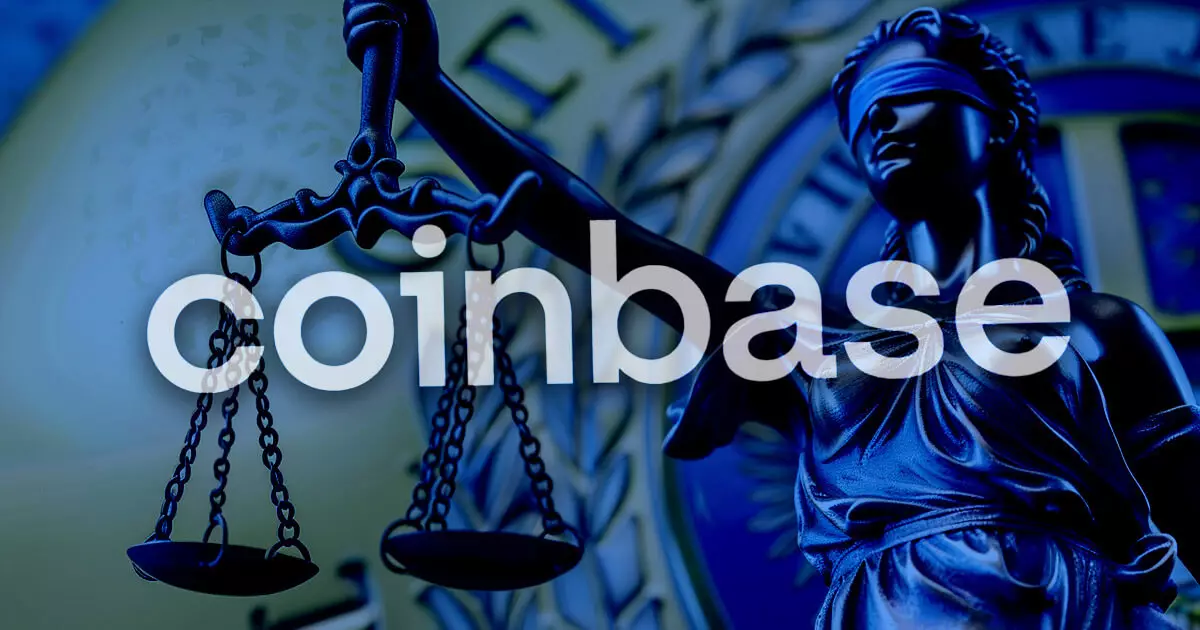In a significant move within the cryptocurrency regulatory arena, Coinbase has initiated a motion for partial summary judgment against the US Securities and Exchange Commission (SEC). This legal action seeks access to internal SEC documents that may elucidate the agency’s enforcement philosophies regarding the crypto sector. This conflict emerged after the SEC denied several Freedom of Information Act (FOIA) requests, specifically those made by History Associates, a firm retained by Coinbase to navigate the regulatory murkiness surrounding digital assets.
The SEC’s resistance is particularly troubling, as it has invoked FOIA Exemption 7(A) — a clause designed to protect law enforcement records from public disclosure. Nevertheless, the SEC has also indicated an acknowledgment that this exemption might not be applicable moving forward, yet remains steadfast in delaying the document review process for an extraordinary three years. Such prolonged timelines raise questions about the regulator’s commitment to transparency and accountability.
Coinbase’s predicament highlights growing frustrations within the crypto industry regarding the opaque nature of SEC regulations. The regulator’s cumbersome procedures suggest an unwillingness to clarify its policies, which, in turn, fosters uncertainty and anxiety among crypto entities. Particularly concerning is the SEC’s struggle to provide precise definitions for what constitutes a security, creating a vacuum that leaves companies vulnerable. The ambiguity surrounding classifications, especially with influential cryptocurrencies like Ethereum transitioning from proof-of-work to proof-of-stake, necessitates a clearer regulatory framework.
Coinbase alleges that the SEC’s delays are not only unwarranted but detrimental to the evolving nature of the crypto sector. In response, the exchange has proposed a dual-pronged strategy aimed at expediting the review of critical internal communications while postponing the examination of third-party documents. This approach aims to mitigate the impact of the SEC’s dilatory tactics, underscoring Coinbase’s commitment to transparency and due process.
The backdrop of this legal battle includes historical cases that may hold implications for the current proceedings. One notable example is the SEC’s earlier pursuit of Zachary Coburn, founder of the EtherDelta exchange, who faced charges for operating an unregistered national securities exchange. This case, settled in 2018 with substantial fines, continues to resonate within the industry as it grapples with the SEC’s regulatory interpretations. Historically, such actions have established precedents that can impact how similar cases are approached in the future, making Coinbase’s quest for clarity all the more pressing.
Moreover, History Associates’ pursuit of information underscores the broader implications for the industry. Particularly, their inquiries are focused on the SEC’s stance regarding Ethereum’s ongoing evolution — a pivotal topic in understanding how the agency may regulate the burgeoning blockchain landscape moving forward.
Coinbase’s legal efforts symbolize much more than a mere struggle for document access; they represent a larger confrontation against perceived governmental overreach. As regulatory bodies grapple with technology that fundamentally reshapes financial transactions and ownership, clarity and fairness in enforcement actions become paramount. This lawsuit could very well set critical boundaries for future regulatory efforts related to cryptocurrency and blockchain innovation.
As the matter unfolds, it will be imperative for all cryptocurrency stakeholders to stay vigilant. A favorable ruling for Coinbase may pave the way for enhanced regulatory clarity, which is essential for fostering innovation and trust in one of the most transformative sectors of the economy today.



Leave a Reply